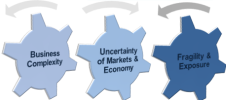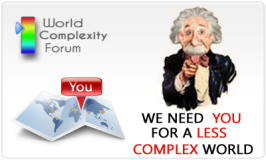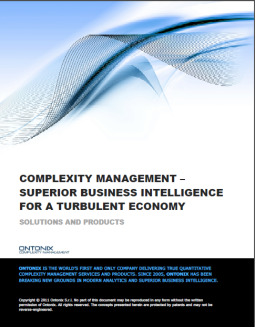Tuesday, 12 October, 2010
Originally published June 2010 but worthy of reprise!
Collaboration has played as significant part in some of the most remarkable advancements in the history discoveries, inventions and science. Whether progress was born out of curiosity or concern great leaps forward in our understanding of “our world” have occurred when interdisciplinary discussion and research take place. I am relieved that the collaboration tools now at our disposal are helping to connect thinkers, leaders and like-minded individuals to consider our collective future. If we listen and contribute we may even avoid making the same mistakes…
In many respects Edge Foundation are leading the way but, thankfully, they are not alone! Like other “citizens” they are impacted when the errors or assumptions of Politicians and commerce are socialised. They recognise the INTERDEPENDENCE of ECONOMIC; ENVIRONMENTAL; SOCIAL; CULTURAL domains. They are key to our own SUSTAINABILITY.
Businesses must take a similarly holistic view…DON’T WAIT AROUND FOR GOVERNMENTS AND INSTITUTIONS TO TAKE A LEAD!!!
It is no longer about reward for SHAREHOLDERS at the expense of STAKEHOLDERS. Organisations need to embrace CHANGE.
Every business evolves in an effort to maintain its competitive advantage within a changing marketplace. But, too often, the change is short-lived [either by accident or design]: to create the “right impression”; to generate the right results; to appease the shareholders/new management/bankers/market; adopt new working practices; because others have adopted similar; “it seemed like a good idea at the time”…
What’s i2o and why is it any different?
Well it is something that I thought summed up what Quantitative Complexity analysis is all about! Getting right to the heart of the matter to build a clear – objective – picture [complexity map], literally, from INSIDE TO OUT: i20. Because Change Management is a difficult enough task to perform when people have their little empires to protect, Silos begin to close ranks and unite like they rarely do on a day-to-day basis! Even within relatively small organisations there is always someone to question the motivation for change. Hardly surprising if there is little [or no] transparency associated with the decision-making process!
TOP DOWN requires an in depth and objective management review. Ultimately, change needs the buy-in of engaged employees. Too often this approach is, understandably, associated with a “command and control” management strategy even where “persuade and influence” is preferred.
BOTTOM UP is all too often dismissed as irrelevant, ill-conceived, impractical or not financially viable, by “the management”.
The result, at least in theory, is impasse. or, at best, compromise that results in minor – often short-lived change.
Hence the benefits offered by i2o. Objective and transparent based upon a quantitative complexity analysis that can be measured, monitored and managed on an ongoing basis. Reduce the number of KPI’s. Identify strengths and weaknesses within the operational structure whilst monitoring the overall complexity of the system and its ecosystem.
RESULT: CONSISTENT, TRANSPARENT, QUANTITATIVE, DECISION-MAKING. Good for everyone, well, except for those with a hidden agenda…
 This is an alarming but not entirely surprising piece. We all know that SME leaders, by definition, are a determined (often proud) bunch whose core skills have led them to pursue their own path. Great. BUT, what this article highlights is that SME’s need help and not the type that is more about the satisfying the demands of greedy [leveraged] growth models, much-loved by Financial institutions or intermediaries infected by a similar “disease”! These organisations do not have enough money to buy what they crave most…TRUST. For the price they would have to pay is TRANSPARENCY and that is a price that they simply cannot afford. Read more of this post
This is an alarming but not entirely surprising piece. We all know that SME leaders, by definition, are a determined (often proud) bunch whose core skills have led them to pursue their own path. Great. BUT, what this article highlights is that SME’s need help and not the type that is more about the satisfying the demands of greedy [leveraged] growth models, much-loved by Financial institutions or intermediaries infected by a similar “disease”! These organisations do not have enough money to buy what they crave most…TRUST. For the price they would have to pay is TRANSPARENCY and that is a price that they simply cannot afford. Read more of this post
















